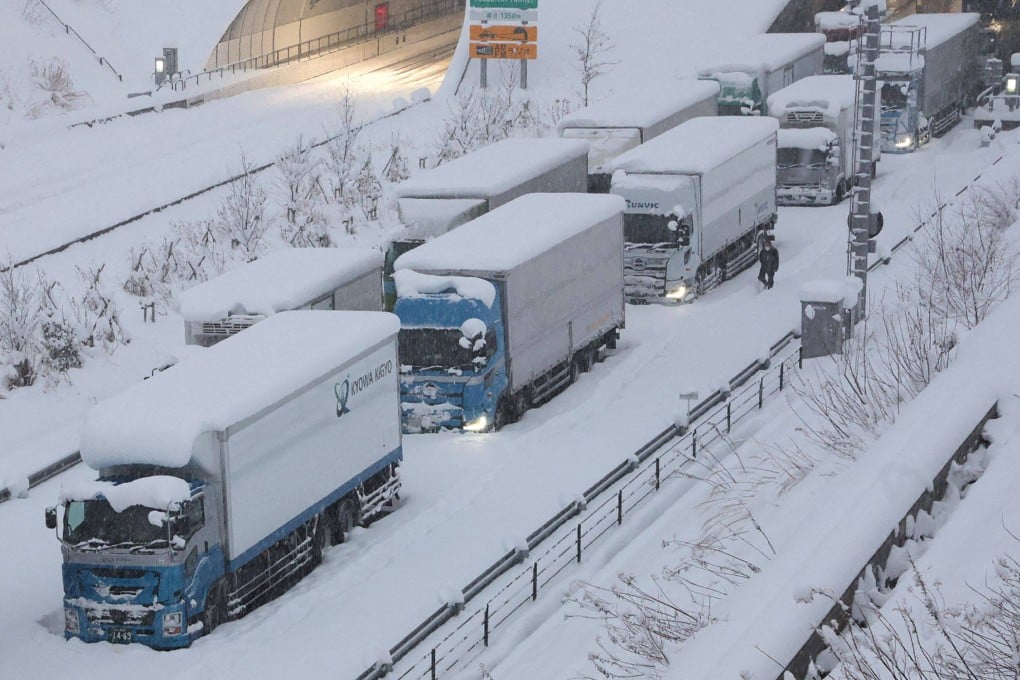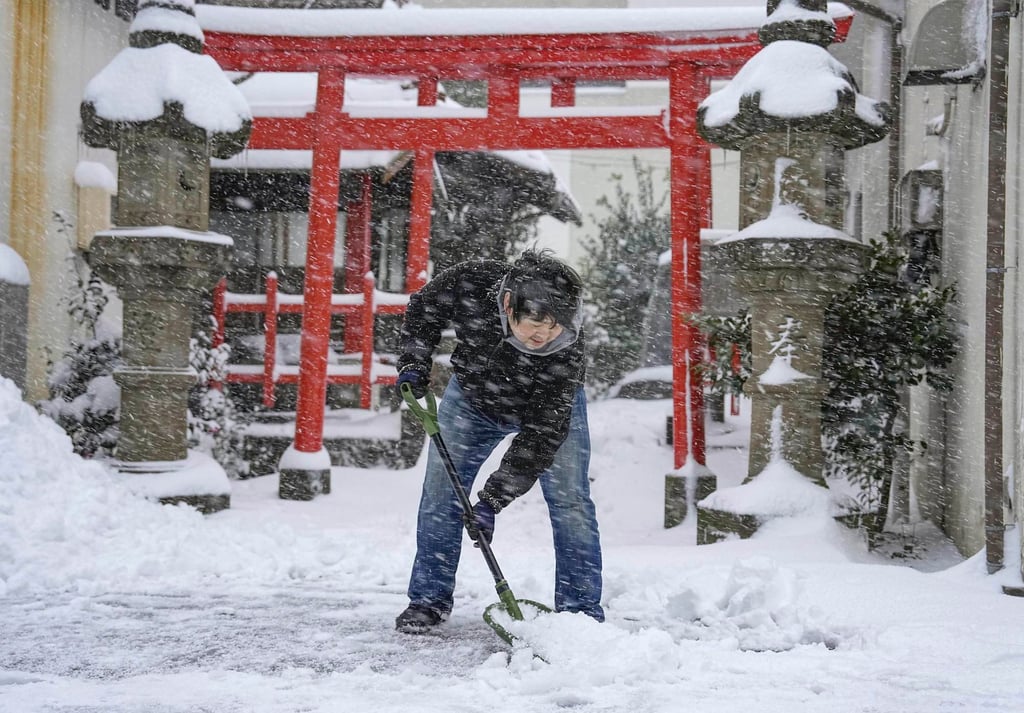Japan shivers as ‘dramatic’ cold snap set to bring more chaos to homes, roads, crops
- The cold snap affected road conditions as dozens of passenger cars and trucks were stranded for more than a day on a busy motorway
- Japan’s Meteorological Agency said four locations experienced their lowest-ever temperatures, with 46 of 47 prefectures reporting sub-zero temperatures Wednesday

Coastal areas on the Sea of Japan from the tip of Hokkaido to southern Kyushu have seen heavy snow, with authorities calling on the public to be alert to the possibility of whiteout conditions, icy roads and freezing fog.
Residents have also been asked to work in pairs when they clear snow from the roofs of their homes in case someone is buried in a fall of loosened snow.

The town of Maniwa in Okayama Prefecture received a record 93cm of snow in the space of 24 hours to 8am on Wednesday.
Of Japan’s 46 prefectures, 47 reported sub-zero temperatures on Wednesday, with only the subtropical islands of Okinawa Prefecture escaping the cold blast.
According to the Japan Meteorological Agency, four locations experienced their lowest-ever temperatures, including Miyazaki City on the southern island of Kyushu, where temperatures fell to -3.9°C.
Conditions were worsened by powerful winds, with meteorologists in the town of Rausu in Hokkaido observing a gust of more than 130km an hour, while a squall in Happo in Akita Prefecture topped 100kmh.
In Central Tokyo, a low for the winter of -2.9°C was reported, although with the wind chill it felt like -10°C, weather reports showed.